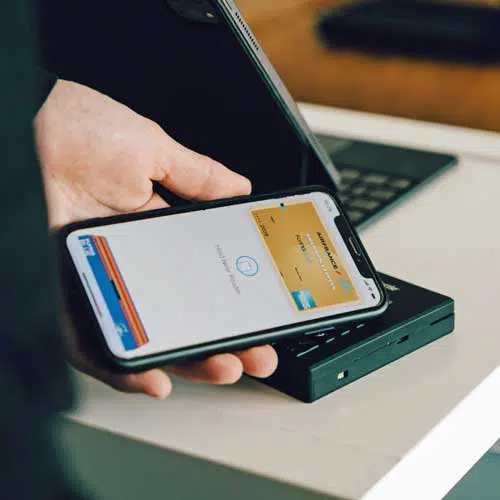Plenty of reports since the onset of the Covid-19 pandemic have documented how consumers have responded by shifting to e-commerce—some for the first time—but few reports break out the impact on the mobile segment of that number. It turns out the pandemic has spurred considerable shopping by mobile-phone users, as well.
As a result, mobile wallets in particular are seeing a surge in usage they may not have enjoyed since the initial rush by enthusiasts to adopt digital tools such as Apple Pay and Google Pay.
Just about two-thirds of consumers bought something either online or in-store at least once using a mobile phone in the past month, according to survey results released Wednesday by BigCommerce Inc. and PayPal Holdings Inc. But after March 2020, some 35.2% said they preferred using a mobile wallet specifically when shopping online, while 28.3% said that had been their preference before the onset of Covid. The survey canvassed 3,000 consumers in the United States, the United Kingdom, and Australia.

That preference carried over to in-person shopping, as well. The proportion of respondents who preferred using mobile wallets at the checkout counter rose to 22.8% from 12.1% before March last year.
Looking at actual usage versus preference, the turn to mobile wallets since before the pandemic set in has been equally remarkable, according to the survey. The number of those saying they are now using the technology more often online rose 24.2%, while the same increase for in-store purchasing is 88.7%. “Respondents overwhelmingly commented that they’d prefer retailers make digital payment options more available,” the survey sponsors say in a news release reporting the results.
With consumers flocking to their computers to shop online, the option to buy online, pick up in store (BOPIS) has also enjoyed a notable rise in usage, according to the survey. In the United States specifically, the number of respondents using the service has shot up 373% since before March 2020, according to the survey. The sponsors note that the result is particularly remarkable because BOPIS has been “slower to catch on” in the United States “compared to other countries.”





